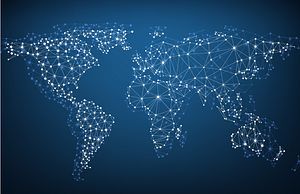At the 2016 Munich Security Conference (MSC) of world leaders, the overriding mood was reflected in the title of MSC’s security report, “Boundless Crises, Reckless Spoilers, Helpless Guardians.” Concern about the continued ability of the Western alliance, and of Europe in particular, to maintain unity in the face of the Syrian crisis and the attendant refugee exodus into Europe was at the forefront.
Yet, the mood among participants was slightly more optimistic when discussing cyberspace. A discussion session reflected that in cyberspace, power is held by corporations as well as States. Western technology companies are major powers in cyberspace, comparable in their overall influence to the governments of China, India, Russia, and the United States. At the meeting, both company and country representatives called for agreement on norms of behavior in cyberspace.
What does responsible cyber behavior by countries and by companies look like?
There is considerable progress—for example, over 20 countries already agree that they should not attack each other’s critical infrastructure during peacetime. Company norms are more nascent, but may come to include not withholding security patches from any customer, no matter where they are based.
Nevertheless, cooperation between governments and companies is far from frictionless.
Cyberspace is now at the leading edge of the fight against violent extremism, as governments pressure social media platforms to screen for terrorist content. However, companies are uneasy taking on an increased, quasi-judicial role in filtering speech, beyond the globally supported efforts against child abuse content and spam. This can be seen in the growing debate between government and industry about privacy, security, and cybersecurity, with the FBI’s case against the Apple iPhone a leading example.
In this way, the Internet has become a proxy, and a catalyst, for a larger global conversation and disagreement around political, cultural and social values. Cyberspace is at the leading edge of a set of global problems that require urgent solution. As Obama’s national security advisor Susan Rice commented last year in an address entitled America’s Future in Asia, today’s “most vexing security challenges are transnational security threats that transcend borders: climate change, piracy, infectious disease, transnational crime, cyber theft, and the modern-day slavery of human trafficking.” This year’s list would have to include migration and violent extremism.
Today, patchworks of formal and ad hoc arrangements struggle to address the risks. It is not obvious they are up to the task. The current situation has perhaps been aptly characterized in the words of Italian revolutionary Antonio Gramsci writing 100 years ago that, “The crisis comes when the old order is dying and the new order is not yet ready to be born. In this period, many toxic forms arise.”
More broadly there is an emergent, non-Western, reformist point of view, as Indonesian President Joko Widodo told several dozen heads of state last year, “We, the nations of Asia and Africa, demand UN reform, so that it could function better as a world body that puts justice for all of us before anything else.”
Yet, the ponderous motions of states and the glacial movements of international organizations are neither agile nor creative enough to respond in a timely manner. This is the real old order that is dying. That is, merely adjusting the composition of the United Nations Security Council or altering the capital allocations of the International Monetary Fund and the World Bank, while critically important interim steps, will not be enough.
What is needed includes deep structural adjustments and shifts in the relative power of the individual and collective, and in the intermediating roles of institutions and organizations of all types, in surprising ways. The Cyberspace arena in general provides some potential models, including ICANN and FIRST. Broader adjustments will take several decades to emerge, as I recently wrote more extensively for the Valdai Discussion Club.
Bruce McConnell is Global Vice President at the EastWest Institute. This article has previously been published on the EastWest Institute Policy Innovation Blog.

































